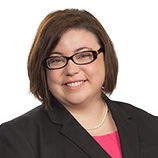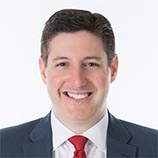Florida Supreme Court Rejects Daubert
October 23, 2018 by boydjenerette on News
The Supreme Court of Florida recently issued a significant opinion, which affirmed that the proper test for Florida courts to determine the reliability of expert testimony for admissibility of evidence comes from Frye v. U.S., 293 F. 1013 (D.C. Cir. 1923). Frye held that expert testimony is admissible if deduced from generally accepted scientific principles. Under Frye, it must be shown that the scientific principle is sufficiently shown to have gained a general acceptance in the particular field in which it belongs. It generally comes into play in new or novel theories.
The United States Supreme Court believed the Frye test too limiting. In deciding Daubert v. Merrell Dow Pharmaceuticals, Inc., 509 U.S. 479 (1993), The Court found that otherwise probative and scientifically valid evidence was being excluded under the Frye standard and changed the test to permit additional relevant evidence to be considered even if it was based on scientific methods or principles that were not yet generally accepted. The Supreme Court of Florida distinguished the tests as follows: “Frye relies on the scientific community to determine reliability whereas Daubert relies on the scientific savvy of trial judges to determine the significance of the methodology used.” The Supreme Court of Florida, in the past, adhered to the more restrictive Frye standard despite the federal adoption of the more lenient standard in Daubert.
The Florida Legislature sought to adopt the Daubert test under section 90.702, Florida Statutes and cease the application of the Frye standard in terms of admissibility of expert testimony. That statute provides that, for admissibility of expert testimony, the testimony “must (1) [be] based upon sufficient facts or data; (2) The testimony [must be] the product of reliable principles and methods; and (3) The witness [must have] applied the principles and methods reliably to the facts of the case.” However, the Supreme Court of Florida recognized that the Frye standard had been formally adopted for use in Florida cases.
The Supreme Court of Florida determined that section 90.702, Florida Statutes infringed on the rulemaking authority delegated to the Supreme Court of Florida under the Florida Constitution. The Supreme Court of Florida recognized that substantive rules of evidence are the responsibility of the legislature, whereas procedural rules are the responsibility of the Supreme Court of Florida. Substantive law generally means that which defines, creates, or regulates rights. Procedural is the form, manner, or means by which substantive law is implemented. This includes rules governing parties throughout litigation. The Supreme Court of Florida determined that the legislature exceeded its authority in codifying the Daubert test in section 90.702, Florida Statutes given that the evidentiary rule concerned a matter of procedure.
Accordingly, the Supreme Court of Florida reaffirmed that trial courts shall use the Frye test to determine the reliability of expert testimony, not the Daubert test as codified under section 90.702, Florida Statutes.
This opinion reaffirms that the scientific community, not the court, is charged with determining whether a proposed expert scientific opinion is reliable. If the principle has gained a general acceptance in the particular field, then it is reliable and admissible. Despite the belief of the United States Supreme Court and the Florida Supreme Court – that the Daubert standard is more liberal than Frye – in practice, the opposite may be true. Indeed, under Daubert, the Frye test of general acceptance in the scientific community is only one of several factors in determining reliability. Moving forward, all challenges to the admissibility of an expert’s opinion must be made under Frye. If you would like a seminar on how this will affect your practice or claims or have any questions about this case, please contact our appellate attorneys.
Kansas Gooden is a Board Certified Appellate Specialist, AV rated, and serves as the firm’s appellate practice group leader. She has extensive experience handling all types of civil appellate proceedings, including extraordinary writs and plenary appeals, in state and federal courts. She also provides trial and litigation support to attorneys throughout the state. Kansas is highly involved in the state and local bar associations and has served in many leadership roles. She currently is the Chair of the FDLA’s Amicus Committee and serves on the Board of Directors for the organization. Kansas is a frequent lecturer and travels the state presenting seminars and presentations on various topics to both attorneys and adjusters.
Kevin Franz is a senior associate in the appellate practice group. His practice focuses on insurance defense with an emphasis on litigation support and appeals. Kevin has received the Martindale-Hubbell AV Preeminent® Peer Review Rating. He has handled appellate proceedings in all five District Courts of Appeal, the Supreme Court of Florida, and the United States Court of Appeals for the Eleventh Circuit.
Kansas R. Gooden
Partner / Practice Group Leader
Direct: 904.493.3755
Email: kgooden@boydjen.com
Kevin D. Franz
Senior Associate
Direct: 954.622.0093
Email: kfranz@boydjen.com


